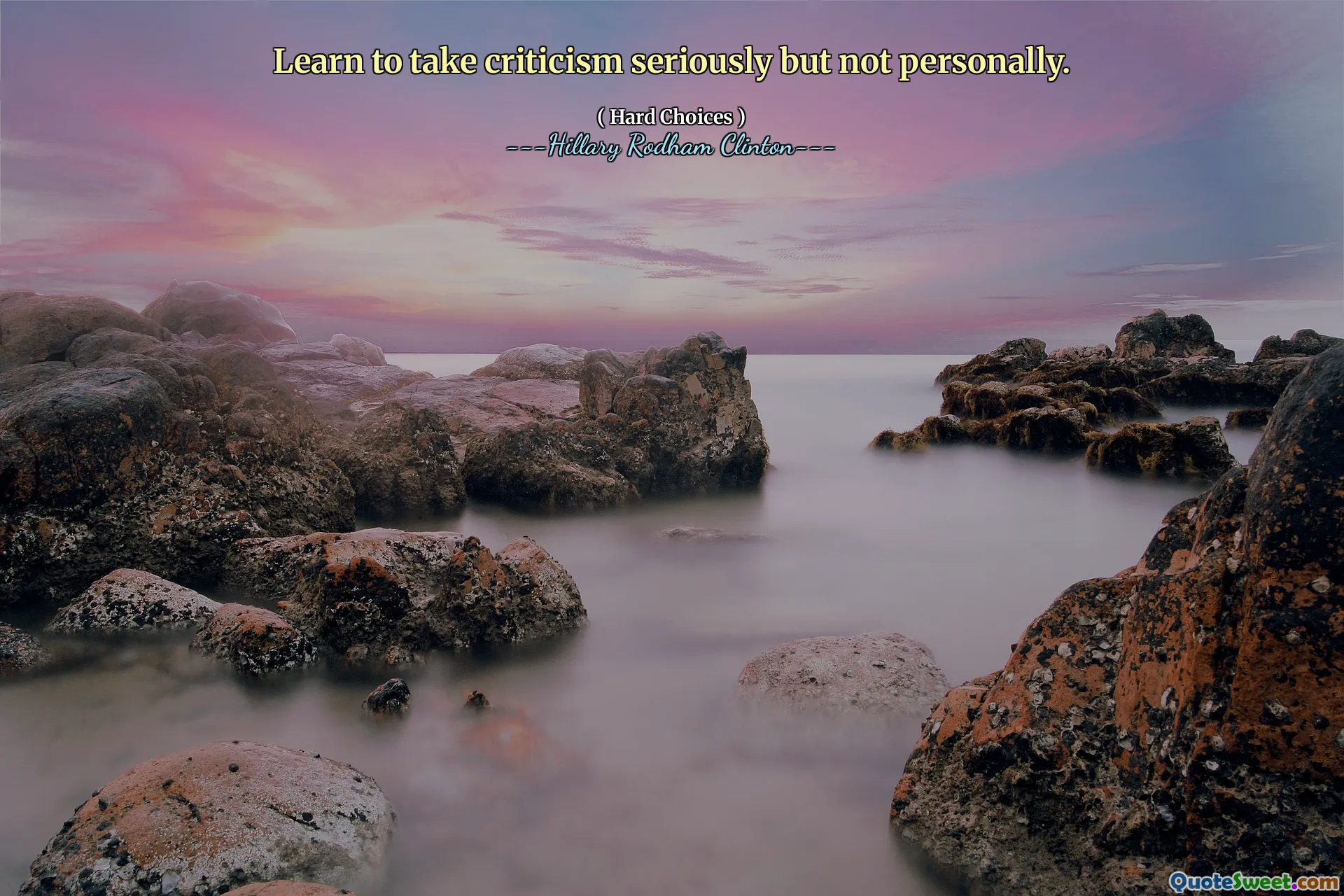
Learn to take criticism seriously but not personally.
This quote emphasizes the importance of developing emotional resilience and a balanced perspective toward feedback. Criticism, when constructively delivered, serves as a valuable tool for growth and self-improvement. However, human nature often involves taking criticisms personally, which can lead to unnecessary hurt, defensiveness, or discouragement. Learning to distinguish between the content of the critique and one's self-worth is crucial. It encourages individuals to assess the validity of the feedback objectively and extract beneficial lessons from it, rather than reacting defensively or emotionally. This mindset fosters humility and a growth-oriented attitude, essential for personal and professional development. It also promotes healthier communication, where feedback is welcomed without fear of damaging one’s self-esteem. Moreover, understanding that criticism is often a reflection of the critic's perspective or limitations helps maintain a sense of calm and openness. For leaders and learners alike, cultivating this ability can enhance relationships, reduce conflict, and accelerate growth. For instance, in a workplace environment, employees who can separate their identity from their work critiques tend to be more responsive to developmental feedback, resulting in better performance and a more positive atmosphere. This attitude aligns well with the notion that mistakes and shortcomings are part of a learning journey, not definitions of self-worth. Ultimately, adopting such a mindset involves a conscious effort to see criticism as a gift rather than an attack, which can empower individuals to evolve continuously and resiliently within their pursuits.






